Blog - Connecting Ideas
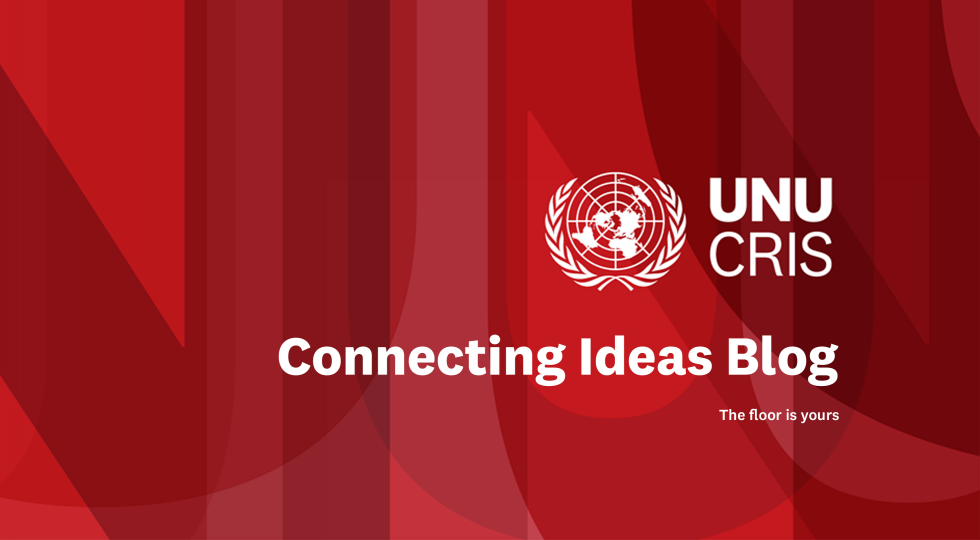
Do you have an idea you'd like to share? Read more about how to contribute to Connecting Ideas.
COP30 and the Nature-Climate Nexus: Unlocking the Potential of Subnational Governments
11/11/2025
How does COP30 in Belém, the first UN climate summit in the Amazon, offer a real-world opportunity to operationalise the nature–climate nexus at scale? This blog by Ana Dias highlights the pivotal but under-recognised role of subnational governments in coordinating across ecosystems, jurisdictions, and sectors to translate ambition into on-the-ground outcomes.
Key Lessons and Gaps from the UN Ocean Conference (UNOC 3): My Reflections
09/07/2025
In this blog, Sil Katrien Maslov Lescrauwaet highlights key lessons and significant gaps from the UN Ocean Conference, underscoring the critical importance of the BBNJ Agreement and the dire underfunding of SDG 14, and arguing that ocean crises stem from human problems.
South American Regionalism and the Liberal International Order: An Ambivalent Relationship
07/07/2025
South America’s relationship with the Liberal International Order (LIO) is a complex one, marked by both cooperation and contestation. In this blog, Giovanni Agostinis and Leiza Brumat show that South American states have used regionalism to contest the LIO in pursuit of diverging goals: expanding liberal norms in some policy areas, while undermining them in others. By comparing the cases of migration and election monitoring, the authors identify the conditions under which South American states create regional institutions that consolidate or undermine the LIO, contributing the a better understanding of the LIO’s tensions and the role of the Global South in addressing them.
Promoting SDG 12 on Sustainable Consumption and Production Patterns – the Contribution of the European Union
03/06/2025
Almost ten years into the 2030 Agenda, the world is "severely off track" on the SDGs, including Goal 12 on sustainable consumption and production. In this blog, Simon Schunz argues that 'sufficiency' - 'doing/using less' in absolute terms - is essential but missing.
The Next UN Secretary-General? Latin America, Gender Equity, and the Fault Lines of Global Governance
16/05/2025
As the tenure of António Guterres gradually nears its end, conversations around the next United Nations Secretary-General are heating up. In this blog, Pía Riggirozzi explores whether 2026 could finally be the year a woman leads the United Nations, and whether that woman could come from Latin America.
Do We Need More Tragedies to Take Disaster Risk Reduction Seriously in Conflict Settings?
15/05/2025
Highlighting crises in Libya, Myanmar, and DRC, this blog by Nicolás Caso Castellón posits that armed conflict catastrophically amplifies disaster impacts due to systemic failures, and calls for politically integrating disaster risk reduction with peacebuilding efforts, moving beyond purely technical approaches to address underlying vulnerabilities.
Venezuela's Enhanced Border-related Brinkmanship and Focused Guyanese Action
24/03/2025
Considering the palpable change in tone from Venezuela following its most recent Essequibo-based provocation, Nand Bardouille argues there is reason for Guyana to scale-up integrative public diplomacy vis-à-vis its foreign policy.
The Humanitarian Fallout of the U.S. Aid Suspension in Latin America
07/02/2025
The US aid suspension in Latin America reveals the fragility of global humanitarian aid systems reliant on single donors. In this blog, Pía Riggirozzi examines how this funding cut exposes the precariousness of such dependency and calls for more diversified and sustainable funding models to better protect displaced populations in times of crisis.
Protecting Scholars at Risk and Defending Academic Freedom?
20/01/2025
The EU's new SAFE programme offers 60 fully funded scholarships to at-risk researchers from outside the EU. In this blog, Ine Lietaert argues that the programme is ethically problematic due to the limited number of scholarships, the competitive nature of the application process, and the focus on “excellence”, which disadvantages scholars from the Global South in many different situations.
A Transformative EU Deforestation Regulation? What the EUDR Implementing Documents (Don’t) Tell Us
15/11/2024
The European Commission’s proposal to postpone the EU Regulation on Deforestation-Free Products (EUDR) implementation has been framed by environmental NGOs and other stakeholder groups as an unfortunate capitulation to corporate interests, sacrificing forests and forest-dependent people for economic profit. In this blog, Elke Verhaeghe argues that despite the original high hopes, the EUDR likely won’t bring the transformation many have in mind.
The Caribbean Community is Pushing a Reform Agenda regarding the UN Security Council
30/10/2024
Caribbean Community bloc member states sent a clear message last month on the need for UN Security Council reform, taking a tougher stand to boot. Drawing on insight from two of his previously published articles on regional thinking on the Council-related reform imperative, Nand C. Bardouille calls attention to this notable development on the international stage.
Migration Crisis in Darien: The Humanitarian Toll of Failed International Migration Policies
04/10/2024
The Darién Gap, a perilous jungle crossing between South and Central America, has seen a dramatic surge in migrants, leading to a humanitarian crisis and prompting Panama to close its border with a barbed wire fence. Pía Riggirozzi explores how, while this closure raises serious human rights concerns, a glimmer of hope has appeared with a change fo rhetoric from Panama's new president.
European Elections and their Implications for Europe’s Future and Relations with Mercosur and Brazil
03/07/2024
The European Elections present significant dynamics and uncertainties that are crucial for understanding the future trajectory of Europe and its relationships with third countries and regions such as Brazil and the Southern Common Market (Mercosur). This piece by Bruno Theodoro Luciano examines the key outcomes of these elections, their potential impacts on the European Union (EU), and the implications for EU-Mercosur and EU-Brazil relations.
The Caribbean Community's Guardrail Diplomacy and the Gaza War
05/06/2024
The dominant Gaza war-related geopolitical dynamics often collide with the interests of Caribbean Community member states which, given the stakes involved for their own security, are leveraging processes of multilateralism to mount a diplomatic stand. In this contribution, Nand Bardouille sheds light on pertinent issues.
What the Caribbean Community's Diplomatic Reset on Palestinian Statehood Means for the Bloc
23/05/2024
Diplomatically, Caribbean small states are leveraging Palestinian statehood to partly respond to contemporary adverse geopolitical trends. Nand Bardouille analyzes the dynamics at play.
The EU’s Water Diplomacy – Rebalancing Securitization Trends to Deliver on SDG 6
09/02/2024
The last decade has seen a transformative shift in the European Union's water diplomacy, complementing a developmental focus with a security-oriented approach. Simon Schunz and Ediz Topcuoglu critically examine this development and its implications for meeting the UN's sustainable development goal on clean water and sanitation. They trace the evolution of EU water diplomacy, revealing the limitations of a security-focused approach, and advocate for a re-emphasis of sustainable development and, notably, environmental protection.
The First ASEAN-GCC Summit and More Diverse Interregional Cooperation
05/02/2024
While the inaugural interregional summit between the Association of Southeast Asian Nations (ASEAN) and the Gulf Cooperation Council (GCC) shows both parties are determined to chart their own courses, Richard Burchill argues that it is too early to make any predictions as to how this new stream of interregional cooperation will impact or perhaps even modify power relations in the pursuit of international organisation.
New Actors on the Bloc: Paradiplomacy and Regionalism
11/01/2024
States are no longer the only actors in international relations, nor do they speak with one voice. The participation of sub-state regions creates opportunities and challenges for international cooperation. Brett Manzer unpacks the concept of paradiplomacy and analyses its significance to regionalism.
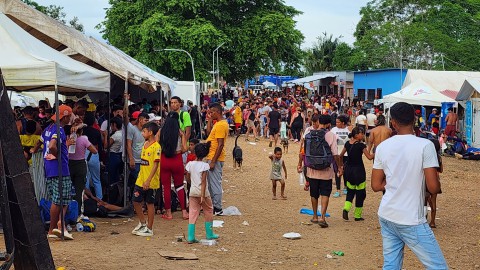
The International Community Is Failing the Human Rights of Forced Migrants Crossing the Deadly Darien Gap
13/11/2023
According to UNHCR, a record 248,000 migrants crossed Panama's Darién Gap in 2022, most of them fleeing hunger, poverty, and violence. Natalia Cintra and Pía Riggirozzi share their experience following a visit to the Gap in July 2023 and highlight the urgent need to strengthen protection systems, emergency responses, and find durable solutions.
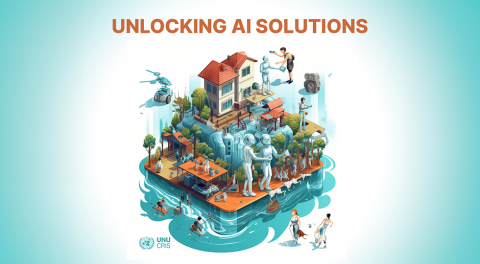
Unlocking Solutions: AI For Disaster Management and Psychosocial Well-being
18/09/2023
Artificial Intelligence has become a powerful tool across industries due to advances in algorithms, computing, and data availability. In this blog, Robrecht Pieters and Nidhi Nagabhatla explore the growing interest in using AI to mitigate the devastating impact of natural disasters by enhancing prediction, response, and recovery efforts, and its potential to alleviate mental health conditions and support the psychosocial well-being of affected people amid climate crises.
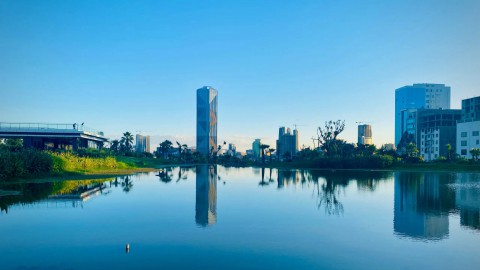
While on the Road: Decoloniality and Its Pitfalls
15/06/2023
Only in recent years has decoloniality emerged as a popular concept in academic circles. Despite its positive aims, it is imperative to thoroughly examine the potential loopholes that might prevent decoloniality from benefiting humanity and Mother Nature. Mesfin Setargie Admassu analyses the nuances and pitfalls of decoloniality, with a specific focus on EU-Africa relationships and Ethiopia.
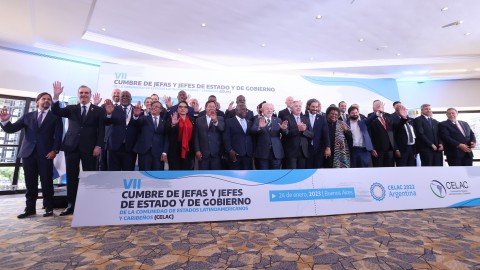
Towards a Comeback of Regionalism? Prospects for Latin American Integration During the New Tide of Leftist Governments
12/05/2023
Last-year, elections of left-wing governments in Latin America have sparked discussions on political convergence being able to revitalise dormant regional integration initiatives. Nevertheless, despite enthusiastic political declarations, the comeback of Latin American regionalism is far from obvious. Analysing domestic, regional and global challenges, Maria Martins reflects upon the obstacles to Latin American integration.

The Three R’s of Research at UNU-CRIS
27/03/2023
A lot has changed in the last seven years, and so have we. In light of the new UNU-CRIS Strategic Plan, Philippe De Lombaerde and Andrew Dunn look back at the major shifts in the world around us since the last UNU-CRIS Strategic Plan was released, and outline how the Institute has adapted its setup and focus to best address current and emerging problems.
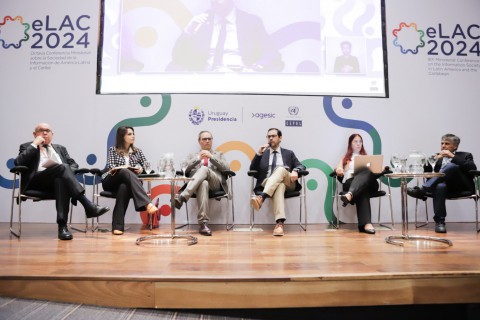
Internet Governance in Latin America and the Caribbean: Is There Room for Regional Integration Organisations?
22/02/2023
Internet governance has increased its relevance in the last decade in the policy agendas of Latin America and the Caribbean. Carlos Fonseca analyses whether regional integration organisations can play a role in the internet ecosystem.
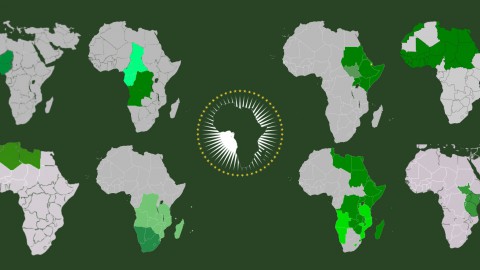
A Manifesto for Regionalism in Africa
31/01/2023
There are no less than 156 regional organisations in Africa, covering a wide range of policy fields. Drawing on their previous research, Fredrik Söderbaum and Sören Stapel present a manifesto for how these regional organisations can meet the continent’s security and development needs.
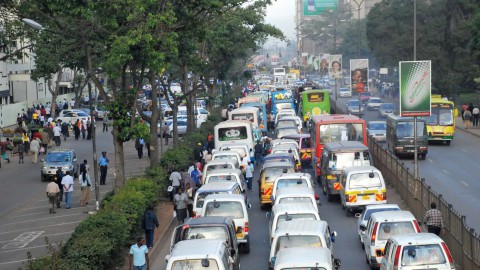
Taking The High Road: A Journey Towards Improved Mobility in East Africa
30/01/2023
Since 2012, the East African region has seen rapid improvements in road transport and intraregional mobility. Despite that, there are a lot of challenges for the region linked to non-motorised mobility. Diana Owuor attempts to look at pre-pandemic mobility and initiatives to enhance Non-Motorized Transport (NMT) as a good start to identifying new trends and missed opportunities in mobility.
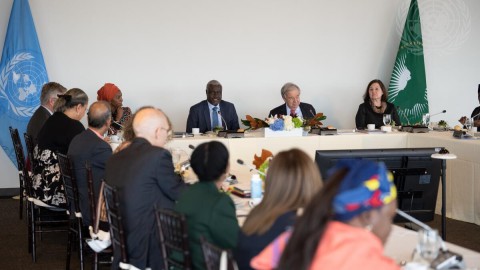
Change by Chance? How International Norms Travel Between the United Nations and the African Union
23/11/2022
Both the United Nations and the African Union have adopted or drafted concepts of protection of civilians in peace operations. One key difference is that the African Union’s concept has an extra tier: rights-based protection. Kseniya Oksamytna and Nina Wilén argue this difference is the result of incidental adaptation, a novel concept to explain change in international organisations.
COP27 Simulation: A New Approach to Reviving Old Goals
18/11/2022
The COP27 Simulation organised by UNU-EHS, UNU-CRIS, and UNU-MERIT brought together inquiring minds among UNU Master students and interns who spent two intensive days debating climate action goals. Iana Ovsiannikova recaps the delegates’ journey to the adoption of the final decision.
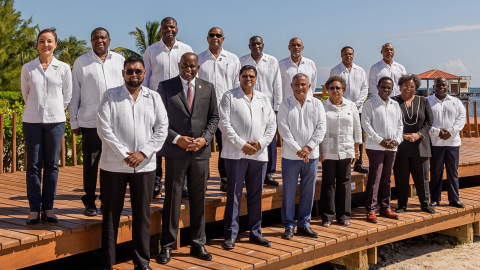
Whither CARICOM States’ Interests in a New Age of Great-power Geopolitics?
03/11/2022
For great powers and small states alike, geopolitical eras provide a cue to foreign policy orientations. This geopolitical reality must be understood within the context of “great-power leadership” and the national interest, outlines Nand C. Bardouille, as is well-known by the Caribbean Community (CARICOM) bloc of small states.
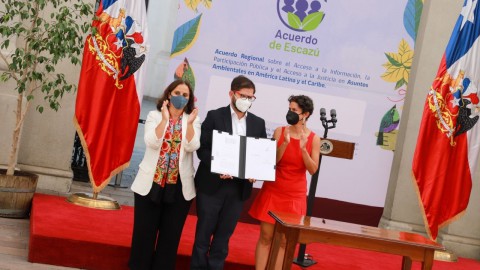
The Escazu Agreement: Latin America’s Regional Take on Climate Change
26/09/2022
The Escazu Agreement, adopted as the only binding treaty at the second United Nations Conference on Sustainable Development, Rio+20, is the first and only one designed by and for Latin America as a region in environmental issues. Tainá Siman discusses the innovations that the Agreement brings to climate action as well as the role of political cycles and regional institutionalisation in Latin America.
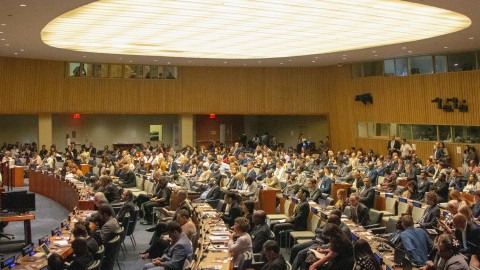
The Role of RCI in Achieving the SDGs in a Crisis-Prone World
30/06/2022
Regional cooperation and integration (RCI) is emerging as a crucial policy tool to address the complex, transboundary challenges we face today. From the current global food and energy crisis to a post Covid-19 world, RCI can help reduce risks and subsequent crises explain Imed Drine and Kadir Basboga.
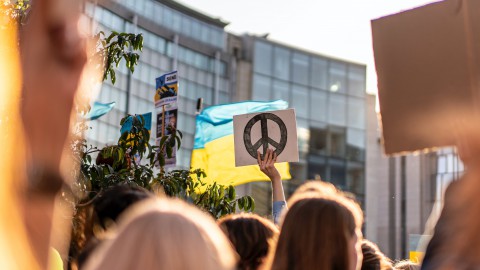
Fleeing Russia’s War in Ukraine, Insights from Moldova
30/06/2022
What was scheduled to be Gaëlle Le Pavic's PhD fieldwork, turned into a volunteering experience with Ukrainians fleeing the war. Conducting fieldwork is an epiphenomenon when war is close and dramatically changing the life of millions of people. This reality pushed her to question the role of a researcher in such situations, and share her thoughts through this blog.
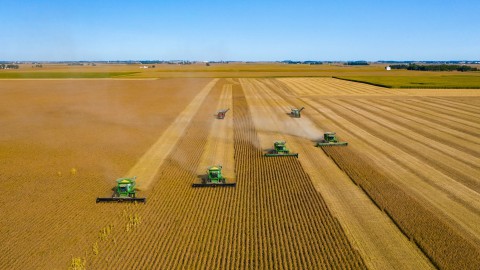
Brazil’s Reliance on Russian Fertilisers: A Vulnerability Turned Geopolitical?
15/06/2022
Being reliant on foreign markets for crucial inputs is already an undesired vulnerability and volatility that has, almost overnight, become geopolitical. Russia is Brazil’s largest supplier of fertilisers. Tareq Helou examines how the latest developments in Ukraine have impacted the critical agricultural relations between Russia and Brazil.
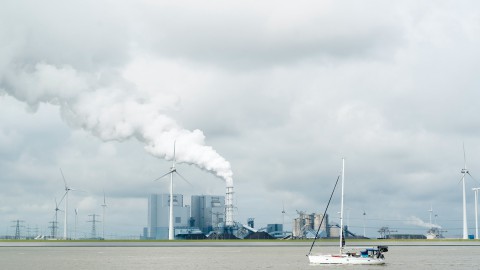
Avoiding Short Term Solutions to an Energy Crisis with Long Term Consequences: The Energy Relation Between Algeria and the EU
09/06/2022
Since the invasion of Russia into Ukraine, the EU has been looking for alternatives to diminish its high reliance on Russian gas with Algeria being on top of its list. However, new hydrocarbon explorations take time and divert funding away from solutions in line with the Paris Agreement. Reinhilde Bouckaert explores a more steadfast approach to the EU its decarbonisation policies over the short, medium, and long-term in its relationship with Algeria.

On Making Climate Policy Work WITH Environmental Policy
08/06/2022
With the climate crisis bearing its dramatic consequences across the world, 'green' solutions by policymakers are gaining prominence. However, the drive to design and implement ‘green’ policies sometimes obscures the distinction between environment and climate policy. This has the perverse effect of conflating two very distinct crises and concealing the need for trade-offs, argues Kevin Le Merle in this blog.
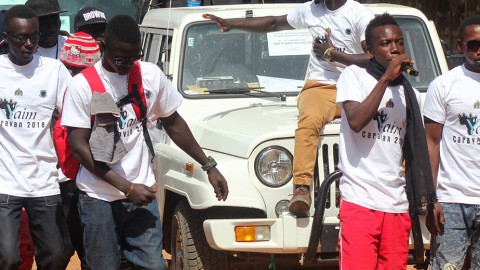
How are CSOs Contributing to the GCM Process? The Experience of a Returnee-Led Group from Gambia Unable to Attend The IMRF
07/06/2022
A distinctive trait of the Global Compact for Migration (GCM) was the involvement of civil-society organisations (CSOs). While CSOs have been involved in negotiation spaces, organisations from the Global South have lamented hindrances in their participation during the ratification stage. Rossella Marino and YAIM explain how CSOs are still not fairly engaged in the Global Compact for Migration owing to their provenance and (lack of) endowments.
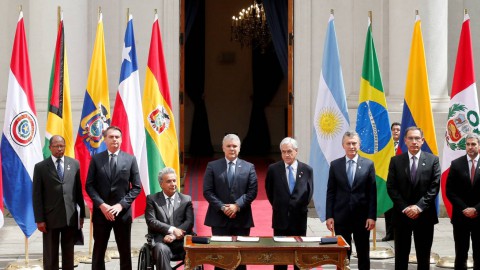
Regionalism And Ideology: How Do Presidential Changes Affect Regional Organisations in South America?
20/05/2022
Ideological confrontations have brought challenges and stagnation to integration projects in South America. Considering the pink tide of the 2000s, the conservative wave of the 2010s and the emerging new wave of left-wing presidents, Carlos Fonseca uses the case of the upcoming elections in Colombia to examine how changes of president and ideology affect integration in the region.
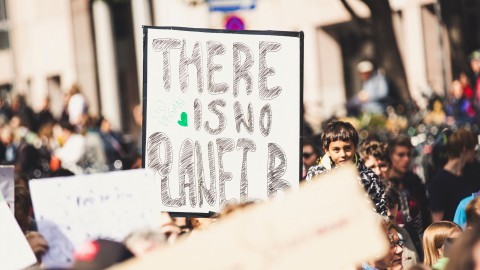
Great Lakes Freshwater, Commoning, and Democracy in a Changing Climate
28/04/2022
Climate change presents new challenges for governance practices. These challenges are particularly evident in the Great Lakes region, where long-standing governance arrangements have allowed for shared management alongside a growing demand for more democratic, community- and equity-centred approaches to water governance. Cameron Fioret explores why identifying innovative water governance mechanisms may foster political voice, equity, recognition, and participation.
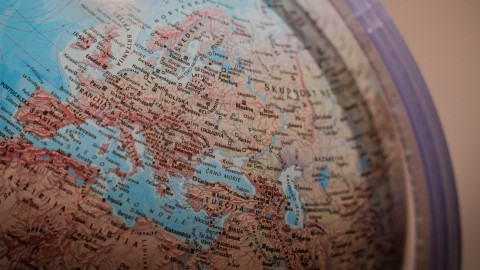
Region building in the Caspian Sea Basin: Do Recent Developments Point Towards an Integrated Region?
10/03/2022
The Caspian Sea Basin provides an interesting case of region building processes especially in the light of recent developments including the building of energy corridors, emerging environmental pressures and resolving of the legal status of the Caspian Sea in 2018. Natalia Skripnikova and Servaas Taghon explore whether these developments could indicate an integrated Caspian Sea Region.
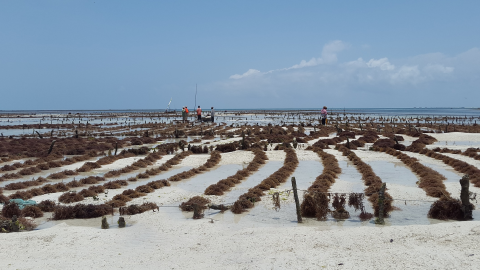
World Seaweed Industry's Development Potential Hampered by Genetic Concerns
08/03/2022
Over six million smallholder farmers across 48 countries depend on seaweed for their livelihoods. This blog by Elizabeth Cook, Nidhi Nagabhatla and Louise Shaxson outlines what’s currently happening in this little known industry and explains seaweed’s potential as a ‘wonder crop’ that can make a considerable contribution to the pursuit of key development objectives.
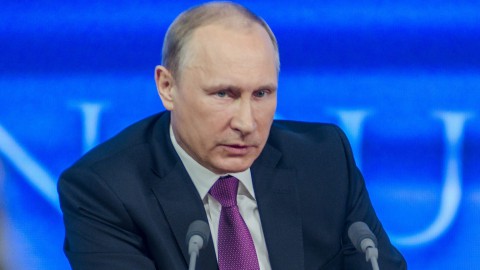
Putin and the Instrumentalisation of (Para-)Diplomacy: An Initiation of War
02/03/2022
While the focus of Russia's invasion of Ukraine remains on state governments and Vladimir Putin, paradiplomacy lies at its very core. In this blog, Philipp Hänstche argues how what ought to be a multi-layered approach to foster mutual understanding has now become an instrument for an invasion.
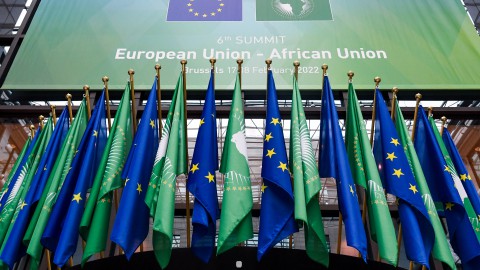
AU-EU Summit: What Stands in the Way of a Deeper Relationship
17/02/2022
High-level summits between the European Union (EU) and the African Union (AU) are often criticised as being photo opportunities without substance. With awkward issues, governance challenges and diplomatic scandals looming over the ties, the mismatch between the two blocs is apparent. Frank Mattheis examines these hurdles in a new blog.
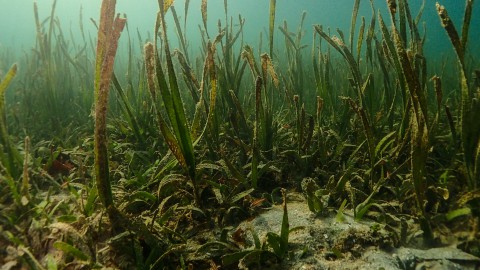
Further Action on Biosecurity Needed to Safeguard the Global Seaweed Industry
10/01/2022
The seaweed cultivation industry supports the livelihoods of over 6 million small-scale farmers and processors across the globle. Concrete actions to ensure the sustainbilty of this industry is thus, the need of the hour. Elizabeth Cottier-Cook, Nidhi Nagabhala and Louise Shaxson highlight the actions needed to support technological innovation, capacity building, and effective regulations to safeguard this industry.

Water F(r)ights from Mega-Hydraulic Projects in Africa
10/12/2021
With 63 transboundary river basins covering about 64% of Africa's land area, there is spatial variation in water access and distribution, and limited clarity about the frameworks for the efficient management of water resources. This blog post by Afaf Rahim, Erik Franckx, John Mukum Mbaku, Liliana Lizarazo- Rodriguez, Nidhi Nagabhatla, Ramazan Caner Sayan and Xavier Farré Fabregat focuses on conflicts involving the three largest basins in Africa: the Nile, Congo, and Lake Chad.
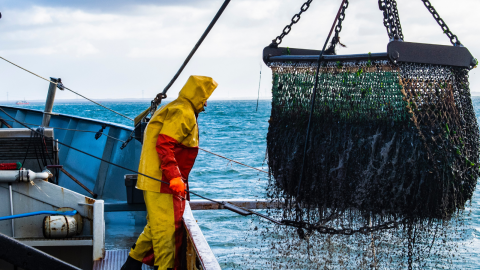
Dialogue or Zero Tolerance? Mixed Signals on EU's Approach to Fair and Sustainable Fisheries
10/11/2021
The EU's approach to combatting Illegal, Unreported and Unregulated fishing (IUU) is a combination of ambiguity and ambition. On one hand, it sends out a message of strictness and zero tolerance; on the other, it allows dialogues between fishing vehicles and local authorities. What do these mixed signals imply? Lina Galvis, Niels Keijzer and Sarah Delputte assess.
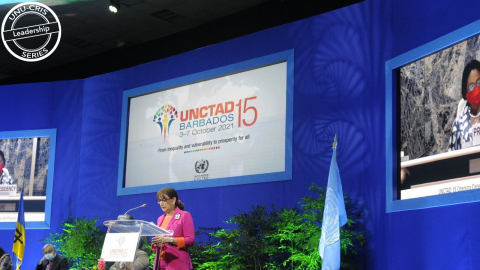
UNCTAD 15 endorsed the Bridgetown Covenant and the Spirit of Speightstown
26/10/2021
From vaccine inequality to economic distress - the 15th session of the quadrennial conference for the United Nations Conference on Trade and Development (UNCTAD) laid emphasis on the multitude of challenges facing the world today. In doing so, it solidified the support for the Bridgetown Coventant aimed at the integration of global trade and development besides also supporting the Spirit of Speightstown highlighting the need for mutlilateralism and international cooperation, writes Yuefen Li.
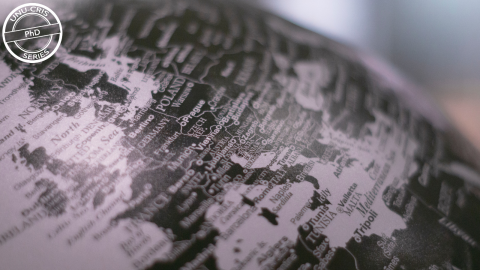
The Socioeconomics of International Migration Decisions: Insights from the Nigeria-Italy Migration Corridor
15/09/2021
The role of human agency and capabilities has been largely ignored in the migration discourse. In this blog based on his PhD dissertation, Chinedu Obi examines the various decision making facets involved in the process of migration within the Nigeria-Italy Corridor.
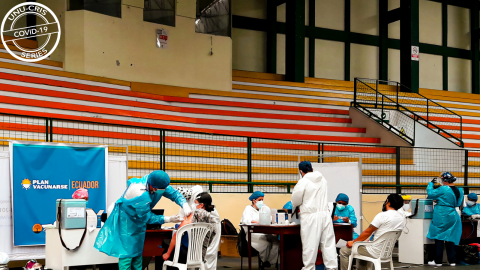
Who is Unsuitable for Vaccination? Actions to Curb Transnational Discrepancies
16/08/2021
Whom is the Covid-19 vaccine suitable for? The lack of a uniform approach towards Covid-19 vaccination has arisen confusion across regions, countries and organisations. Can pregnant and diabetic individuals be vaccinated? Different countries have different recommendations. To ameliorate this discrepancy, governments must actively provide reasoning for their respective guidelines, explains Henry Kwan.
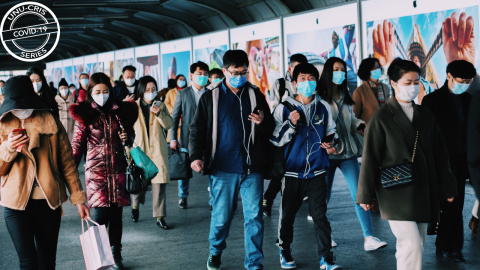
Paradiplomacy: An Opportunity to Strenghthen Public Leaderships in the Time of Covid-19
03/08/2021
Covid-19 has made it clear that pandemics don't recognise borders. The crucial role of local governments and paradiplomacy in navigating crises such as the current one, has also become abundantly clear. While the situation at hand presents several challenges, it is an opportunity to strenghthen the emergence of paradiplomacy rooted within dialogue and best practices, argues Nahuel Oddone.
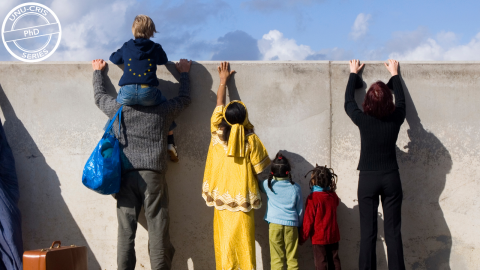
The Politicisation of EU Migration Policies and their Impact on European Integration
20/07/2021
How is Brexit linked to the 2015 refugee crisis and subsequent migration policies in Europe? Used by the 'Leave' campaigners, immigration was a critical factor in determining the result of the Brexit referendum, argues Sevgi Temizisler as she explores the politicisation of migration policies in Europe and their implications for integration within the continent.

Mutual Trust in Regional and Interregional Cooperation on Counterterrorism: Approaches from EU and ASEAN
19/07/2021
A lack of trust among nations is one of the key barriers in the international cooperation against terrorism. Celine C. Cocq explores how mutual trust has been developed and operationalised to facilitate cooperation against terrorism between competent national authorities within the European Union (EU) and Association of Southeast Asian Nations (ASEAN).
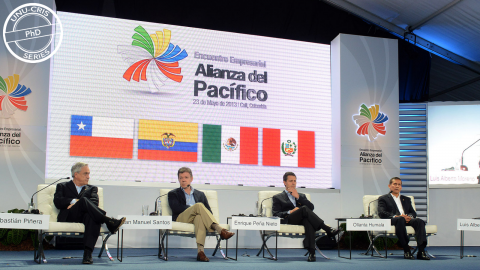
Of Blind People, Elephants and the Pacific Alliance Integration
13/07/2021
Is the Pacific Alliance(PA) really a unique blueprint for regional integration as it claims to be? This contribution by Ana Maria Palacio Valencia examines the PA from an institutional perspective unpacking its design, ideational underpinnings and questioning whether its current institutional framework is sustainable to support the association in the long term.
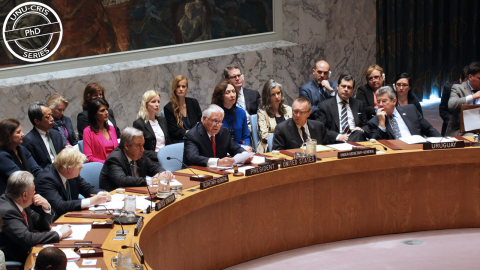
Confrontational and Cooperative Regional Orders: Managing Regional Security in World Politics
30/06/2021
Regional orders are a salient feature of the world we live in today. Global and domestic dynamics continue to evolve as regions undergo transformation. In the face of such change, Gonzalez Levaggi decodes the pathways for confrontational and cooperative regional orders; while seeking answers to the influence of 1) extra-regional great powers on regional orders and 2) domestic factors on regional transformation.
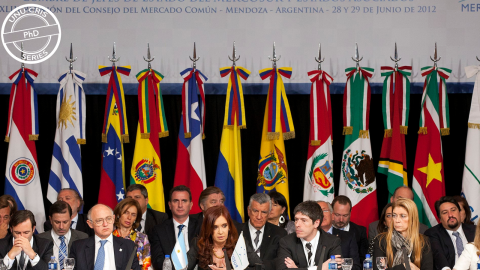
Overlapping Regionalism: Empirical Studies on South America and Africa
29/06/2021
While overlapping regional organisations have been discussed in recent years, the on-ground impact of their interactions remains unclear. Presenting findings from her doctoral dissertation, Clarissa Ribeiro uses the cases of South America and Africa to analyse the dynamics of overlapping regional organisations when they have concurrent competencies over political crises and the impact on their respective regions.
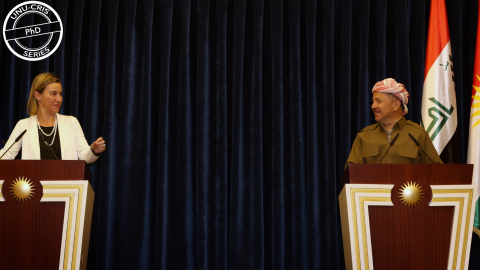
The European Union and the Kurds: The EU's Actorness in the Transnational Kurdish Issue
28/06/2021
As a transnational political conflict across four states (Iran, Iraq, Syria, and Turkey), the Kurdish issue involves various sub-state, state, and global actors. Till now, the EU's image in the issue has been a normative one. However, the past two decades have witnessed the evolution of this role shaped by common interests and interactions argues Zana Kurda.
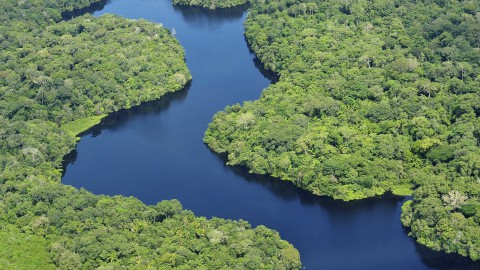
Governance Challenges for Preserving the Amazon Region
23/06/2021
The Amazon Rainforest is essential for the survival of not just the regional but also the global population. The fragility of this vital ecosystem combined with the challenges within the Amazon region beckon a multidimensional governance approach argue Liliana Lizarazo Rodriguez, Doreen Montag, Elke Verhaeghe, Maria Antonia Tigre, and João de Freitas.
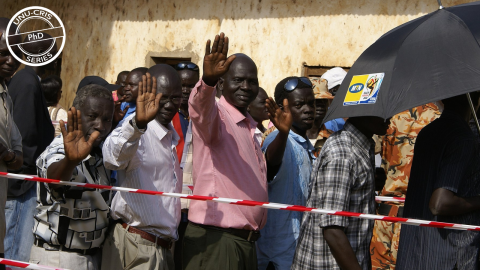
Post-Conflict Self-Determination Referendums: Serving Peace and Democracy?
22/06/2021
Referendums have been increasingly held to settle the most intensive self-determination conflicts. Kentaro Fujikawa argues that these post-conflict self-determination referendums have intended and unintended consequences for peacebuilding in war-torn societies.
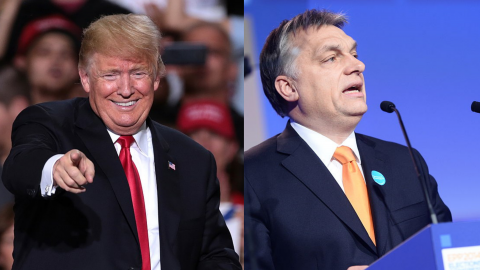
Together for ‘the People’: Why Populists Cooperate Internationally
09/06/2021
Assumed to be nationalistic and inward looking, why do some populists engage in international and regional cooperation? Using key findings from their new book, Fredrik Söderbaum and Killian Spandler, contest the mainstream understanding of a typical populist leader. From Venezuela's Hugo Chavez to Hungary's Viktor Orban, the new book delves into why some populists not only engage, but actively promote regional cooperation.
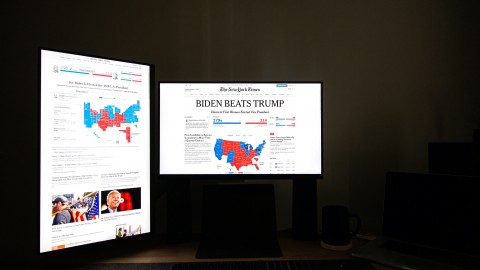
A New Migrant Haven? Biden's First Steps at Migration Management
04/05/2021
Resolved to undo the controversial migration policies of his predecessor, Joe Biden faces a fragile challenge characterised by a divided Congress and complex border issues. Will Biden be able to deliver upon his election campaign promises and turn US into a migrant haven? Rossella Marino explores.
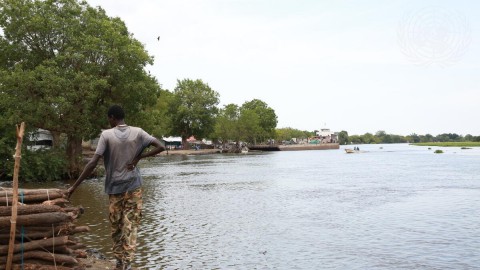
Water: Different Values, Shared Futures
22/03/2021
Water means different things to different people, but is essential for all. On World Water Day 2021, Nidhi Nagabhatla writes why considering the multiple values of water may lead us to the path of water-secure futures for all.
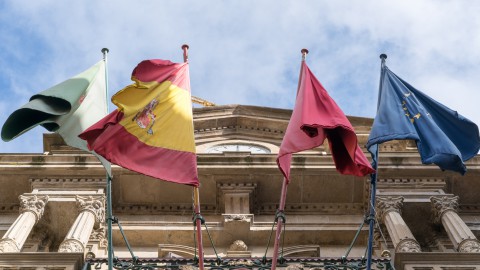
The Unintended Consequences of Interregionalism
25/02/2021
The complexity and diversity of interregionalism often makes any prediction beyond reach. Frank Mattheis argues, while the consequences of interregionalism can be intended and expected - they may also be unintended, unexpected, and often surprising.

When An Anti-Global Covid-19 Response Works
25/02/2021
One characteristic of the global response to Covid-19 has been that it has not been global. While this poses some challenges, it also offers opportunities - some of which, rather unexpected. Diana Owuor explores the interplay between regions and states in the aftermath of Covid-19.
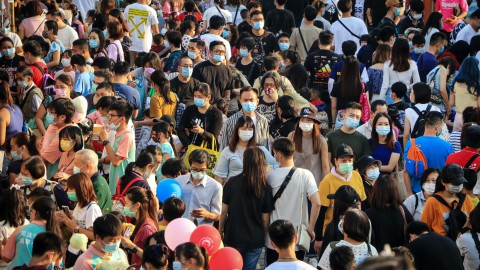
Readying Regional Trade Agreements for Future Crises and Pandemic
25/01/2021
How can policy responses ensure the sustainability of international trade agreements? Yann Duval, Runqiu Du, Gabrielle Marceau, Miho Shirotori and Taisuke Ito explain why improving existing trade agreements will help us prevent a total collapse of global supply chains in the future.

Addressing the Heating Challenge: Developing National Decarbonisation Roadmaps
25/01/2021
Over the past decade, Europe has led the way to tackle the energy and climate challenge. Kapil Narula argues, to achieve carbon neutrality by 2050, European Union (EU) has to revamp its heating policies - since their progress has been inadequate at best. He also proposes that national roadmaps for heat decarbonisation should be leading the way for this long-overdue transformation.
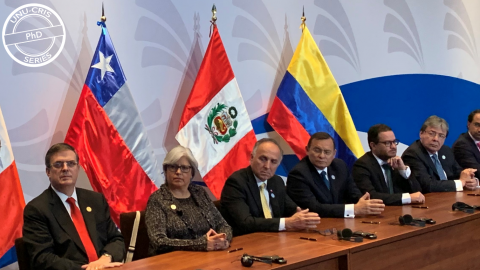
The Pacific Alliance's Collective Identity and Insights on its Sustainability
21/01/2021
The Pacific Alliance manifests the coexistence of multiple identities held by its intergovernmental and supranational group members. Angélica Guerra-Barón explains the central role played by languages and discourses, alongside domestic and regional decisions in shaping this collective identity.
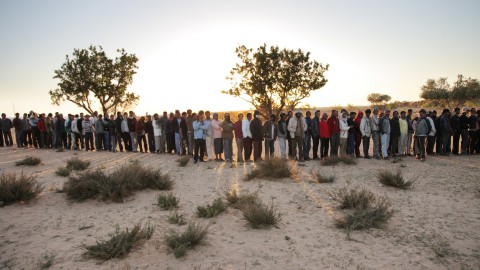
Brexit, Dublin and the Asylum Seekers Caught in Between
13/01/2021
The Dublin Regulation and Brexit are two thorny issues that have been negatively affecting the asylum seekers in Europe. Rossella Marino explains the dehumanised position of these asylum seekers and outlines why EU and the UK need to rethink their respective approaches in the post-Brexit era.

Fighting COVID-19 Using WhatsApp Messenger: The Case of Africa
19//11/2020
In tackling the Covid-19 pandemic, governments have taken to using all avenues and channels necessary to reach their peoples. Across Africa, explains Ryan Hambury, the popularity and widespread use of WhatsApp has provided both benefits and detriments in the fight against the pandemic, offering an avenue to interact directly with the millions who use the app daily, yet also being a vehicle for misinformation and highlighting concerns about censorship and press freedom.
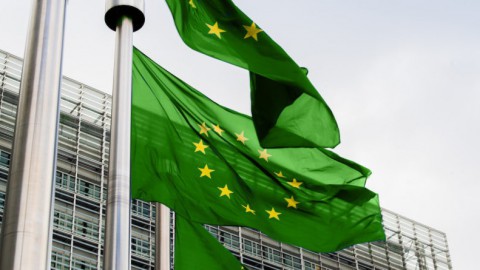
EU Climate and Environmental Diplomacy - From Institutional to Ecological Effectiveness?
19/11/2020
With the European Green Deal initiative and its many different components, it appears as if the EU is now – at least rhetorically – making a commitment to transformational environmental justice and more attention to ecological effectiveness. Simon Schunz, Bram De Botselier and Sofía López Piqueres explore whether the EU’s institutional reforms equate to actual change, ask the question - does it contribute to genuinely protecting non-human nature?
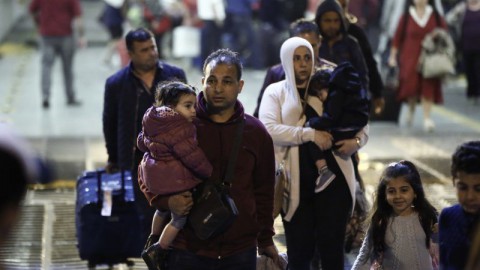
Solidarity Is in the Eye of the Beholder: Reflecting on the EU’s New Pact on Migration and Asylum
30/10/2020
Heralded as a ‘fresh start’ aimed at replacing the ad-hoc solutions found to face challenging situations at EU borders with a predictable and stable “migration-management system”, the European Union’s New Pact on Migration and Asylum has ignited fierce debate. Rossella Marino gives her take on the proposal and what it tells us about how the EU views itself in the context of migration.
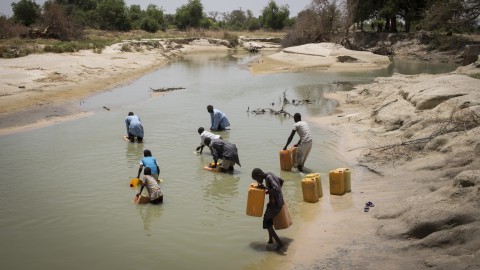
Transaqua, Lake Chad and the Congo Basin – A Call for Cautious Action
30/10/2020
Transaqua, the massive water infrastructure project first pitched in the 1970s, is back on the political agenda and claims it can reshape regional politics in Central Africa. However, questions remain over its feasibility and whether it can win over its various stakeholders to deliver on its ambitious agenda. Nidhi Nagabhatla and Ramazan Caner Sayan explore some of the key questions missing in the debates over what is supposedly the biggest water project in the world.
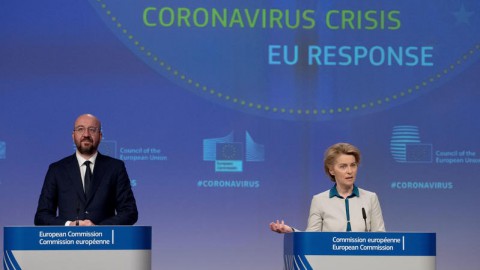
Response to COVID-19 Shows the European Union’s Commitment to Regional Cooperation
10/09/2020
After initial slow reaction to the outbreak of COVID-19, the European Union (EU) has adopted a number of important measures to help contain the spread, support national health systems, and counter negative social and economic impacts of the pandemic. Yana Brovdiy delves into the "Team Europe" package and how, through its engagement with the EU's regional partners and neighbours, it demonstrates the Union's commitment to regional cooperation.
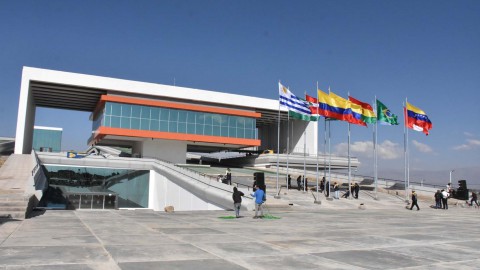
Regionalism Under Stress: Europe and Latin America in Comparative Perspective
31/08/2020
It is a time of great stress for regionalism in Latin America and Europe, exacerbated by the Covid-19 crisis. Detlef Nolte and Brigitte Weiffen compare the stress factors facing both regions and explore how resilient they are to the strengthening forces of disintegration.

The Challenge of COVID-19 and the Need for Meaningful Inclusion
18/08/2020
As confinement becomes a passing memory, and the dramatic nature of the situation we have undergone in the past few months fades, Orsolya Gulyás, Trisha Meyer, Diāna Potjomkina and Jamal Shahin ask questions about how our societies react to crisis and how we interact as individuals during these moments.
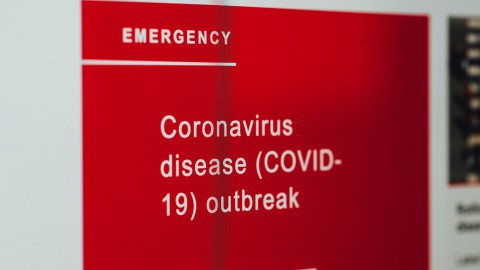
COVID-19 in Pakistan: Reality Presents Opportunities
16/07/2020
Pakistan is one of the countries where COVID-19 is currently wreaking havoc. As the number of cases increase exponentially and further burden systems, an opportunity to strengthen healthcare and public health approaches emerges with a call for better regional coordination in managing current and future outbreaks, argue Zoha Anjum and Ayak Wel.
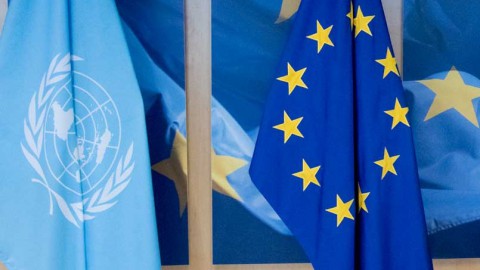
The EU and the UN: Partners for a Purpose
10/06/2020
Fresh from his address to the UN Security Council, Josep Borrell argues that, with the stress on multilateralism exacerbated by COVID-19, the world needs a Security Council able to take the necessary decisions and not one that is paralysed by vetoes and political infighting, so multilateralism can deliver results for the people who need it most.
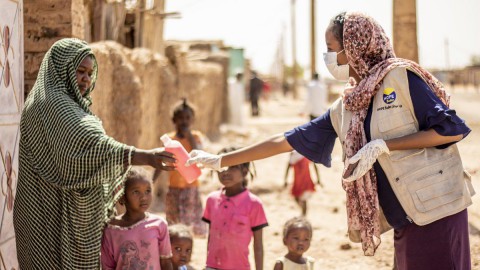
COVID-19 and Its Effect on Conflict-Affected and Displaced Women: The Sudanese Case
03/06/2020
The risk to women in conflict-affected countries is at an all-time high. Ikhlas Mahmoud looks at the case in Sudan, where women, already suffering from issues related to poverty and vulnerability caused by violence and conflicts in their communities, are at greater risk of contracting COVID-19 as they simply often cannot comply with health instructions that prevent the spread of the disease, and offers a set of recommendations to help protect some of those must vulnerable.
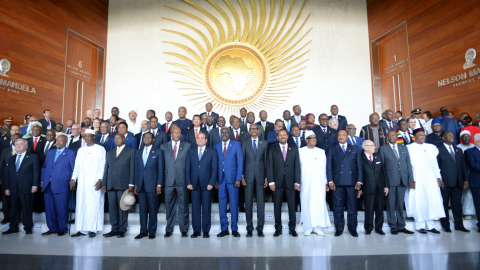
The COVID-19 Crisis and Regional Organisations: More Money, More Problems?
27/05/2020
Despite the evident transnational dimension of Covid-19, most regional organisations across the world are struggling to emerge as key actors in the current crisis. Frank Mattheis looks at how, despite nation states jumping the gun, regional organisations might come out of the Covid-19 crisis with enhanced powers and resources, but warns more money may equal more problems.
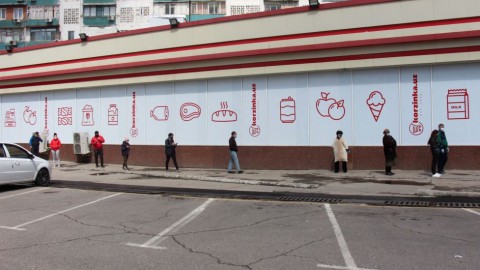
What Role for the EU in a Post-COVID-19 Central Asia: On the Way Out or Right Back In?
23/05/2020
The EU’s chequered response to COVID-19 has not only been detrimental for its image inside the bloc, but also externally, with a heavy toll to be paid in terms of its declining appeal abroad. Fabienne Bossuyt looks at the case of Central Asia, where both Russia and China were quick to position themselves as forces for good in fighting the pandemic, and puts forward the two options the EU has to maintain or increase its influence in the region post-COVID-19.
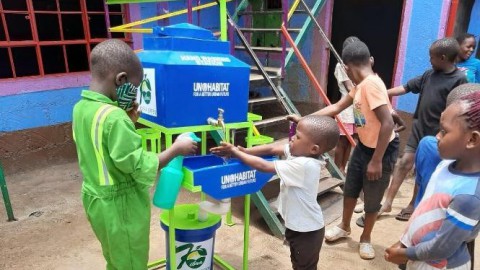
Key Messages: COVID-19 and Informal Settlements
19/05/2020
The COVID-19 pandemic will hit the world’s most vulnerable people the hardest, including the one billion people living in informal settlements and slums worldwide. This piece from UN Habitat outlines measures to build the resilience of informal settlements and slums to protect against the pandemic.

We Go Digital: The South Korean Case and Sustainable Digital Transformations
13/05/2020
South Korea’s use of digital technology in the fight against COVID-19 has fostered great debate, drawing both criticism, for its privacy implications, and praise, for its effectiveness. JeongHyun Lee takes a closer look at the technologies used and asks how the digital transformation accelerated by COVID-19 can be sustainable in the long run.
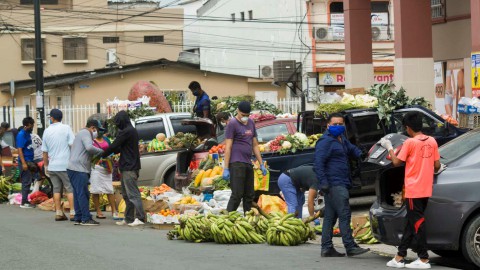
Disrupted Latin American Integration: Challenges to Business as a Result of COVID-19
13/05/2020
The full impact of COVID-19 in Latin America will not be known for some time yet, but there is one certainty – inequality will grow. Irma Vásquez, Nicol Cárdenas and Daniela Acuña delve into two of the big issues regarding business in the region, the informal economy and the capacity for innovation.
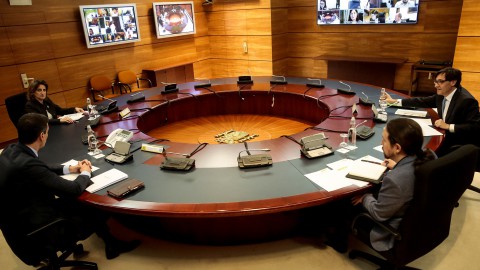
Hammer or Nudge? International Policy Options for COVID-19
11/05/2020
While COVID-19 has seen scientific facts and evidence catch the ears of national policymakers, business leaders and the general public, over time it has become clear that many of the science-based policies used to contain COVID-19 are first and foremost based on ‘hypotheses’. Luc Soete looks at the science-based policy advice during the pandemic and whether a ‘hammer’ or a ‘nudge’ is the best tool in this crisis.
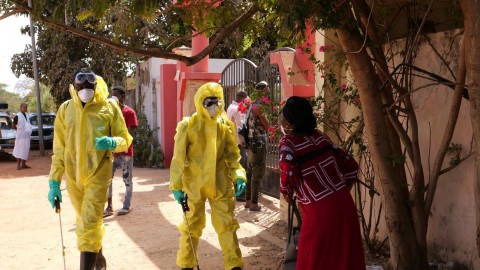
Is Lockdown the Same, Everywhere, For Everyone?
04/05/2020
While a third of the global population is under lockdown because of COVID-19, the effects of these unprecedented measures are not uniform across countries. Rossella Marino looks at how the lockdown is affecting the Gambia, a nation that has a largely informal economic system and a heavy reliance on tourism, putting this new democracy to the political test and potentially driving more Gambians to migrate further afield.
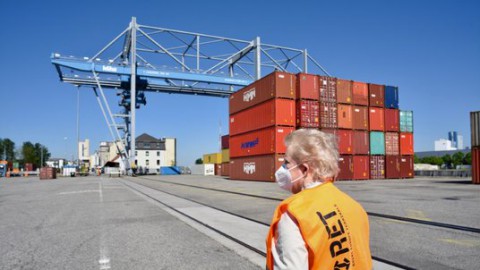
Will the COVID-19 Crisis Herald the End of Neoliberal Globalisation and the European Union’s Free Trade Doctrine?
30/04/2020
Not so fast, write Jan Orbie and Ferdi De Ville. Neoliberal globalisation’s death has been announced during many crises over the past decades, only to come out unscathed, or even reinforced. Although neoliberalism is (again) challenged, its resilience cannot be underestimated, and the alternatives might not be as progressive and emancipatory as deglobalisation advocates have in mind.
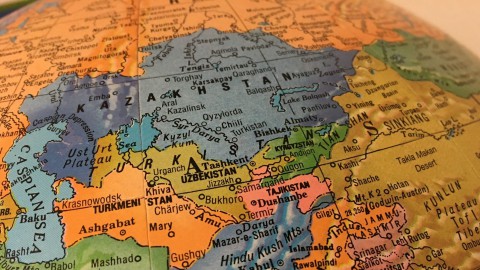
Where There’s a Will, There’s a Way: The Case for Greater Cooperation between Russia and the EU in Central Asia
28/04/2020
The European Union and Russia may seem strange bedfellows in Central Asia given the ongoing geopolitical rivalry between them. However, as they both share an interest in a stable, prosperous and secure Central Asia, and have very complementary expertise and capabilities in areas in which they are both already active, Fabienne Bossuyt argues that there is significant opportunity for cooperation, and the underlying will to make it happen.

East Asia and Pacific: Countries Must Act Now to Mitigate Economic Shock of COVID-19
24/04/2020
The virus that triggered a supply shock in China has now caused a global shock and significant economic pain seems unavoidable in all countries. A new report from the World Bank looks at how countries in East Asia and the Pacific must take action now – including urgent investments in healthcare capacity and targeted fiscal measures – to mitigate some of the immediate impacts.
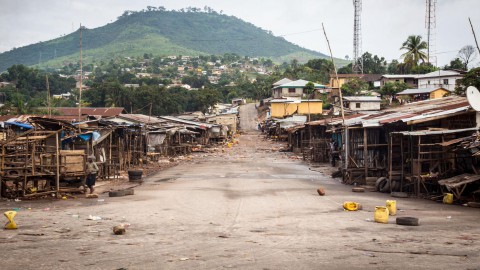
COVID-19 (Coronavirus) Drives Sub-Saharan Africa Toward First Recession in 25 Years
24/04/2020
Growth in Sub-Saharan Africa is forecast to fall sharply from 2.4% in 2019 to -2.1 to -5.1% in 2020 due to COVID-19, the first recession in the region over the past 25 years. A new report from the World Bank provides analysis of the issues shaping Africa’s economic future.

RIKS: A Forthcoming Structured Introduction to the Regional Bowls of Spaghetti
23/04/2020
For those unfamiliar with the “spaghetti bowls” that are Free Trade Agreements, navigating between various regional formats might seem challenging. This is where, argues Zane Šime, the forthcoming Regional Integration Knowledge System (RIKS) platform will come in handy, serving as a promising springboard for a deeper dive into the intricacies of multilateral consultations and collaboration.
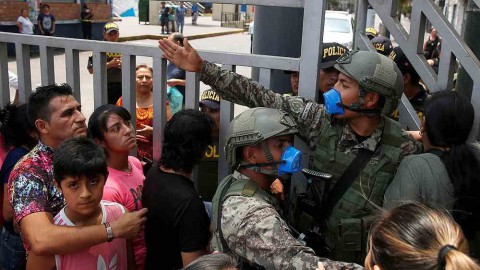
COVID-19: An Opportunity for Regional Cooperation in Latin America?
15/04/2020
Health has long been defined as a policy problem to be addressed at the regional level by MERCOSUR, with COVID-19 set to put its past successes to the test. Andrea Bianculli examines the history of regional health governance in the region and why COVID-19 is more than just an opportunity for cooperation in Latin America.
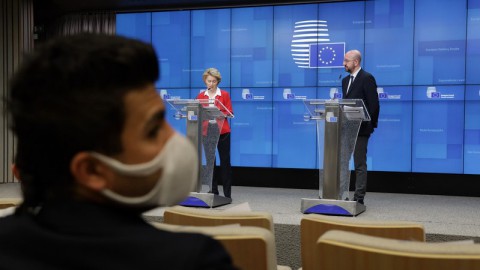
The EU and the Unravelling of the World Order in Times of the COVID-19 Pandemic
07/04/2020
Although one cannot predict what the long-term impact of COVID-19 will be on the world economy and on the geopolitical situation, at a minimum it will have profound effects overtime on the way the world is politically, economicaly and socially organised. Richard Higgott and Luk Van Langenhove posit that this could well be the tipping point that will eventually change the current world order, and Europe and the EU must be better prepared.
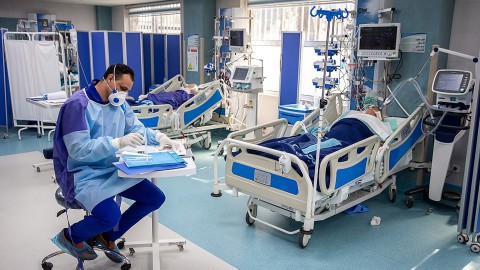
The Sobering Reality of Unpredicted Scenarios: COVID-19, Health and Regional Politics in Latin America
06/04/2020
While the state still exercises undoubted and indisputable regulatory power over public health decisions and over societies within their own territorial limits, the scope and implications of health crises, as manifested in the COVID-19 pandemic, are and will be a cross-border and global problem. Pia Riggirozzi looks at how this crisis is being tackled across Latin America, and the tension between national and regional responses.
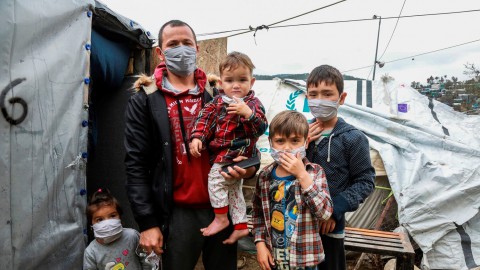
“Not our problem…”: Building International Resilience for Refugee Protection
03/04/2020
As the COVID-19 pandemic sends shockwaves across the world and as countries continue to shut down borders, ban visitors from highly infected countries and suspend flights, refugees caught up in overcrowded camps should be at the heart of the fight against the virus. Anicée Van Engeland and Sherine El Taraboulsi-McCarthy examine how we can enforce the right to health for the most vulnerable during the COVID-19 pandemic.
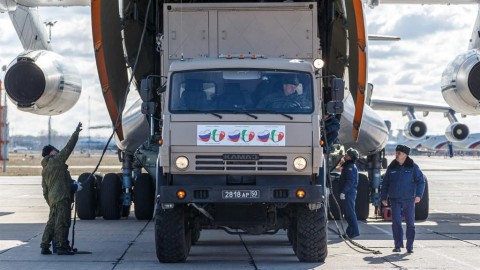
The Irresistible Rise of Health Diplomacy: Why Narratives Matter in the Time of COVID-19
30/03/2020
As planes with medical supplies arrive "from Russia with love" and Cuban doctors touch down in Italy, the building of post-COVID-19 narratives has already begun. Domenico Valenza takes a closer look at the rise of health diplomacy, its history, and what High Representative of the EU Josep Borrell calls a “struggle for influence through spinning and the politics of generosity”.

Trade Policy and the Fight Against the Coronavirus
23/03/2020
Beyond the terrible loss of life, the economic impact of the coronavirus will be dramatic and long-lasting. Oscar Guinea and Iacopo Monterosa look at what trade policy can do to support the fight against the coronavirus, beginning with removing the restrictions and tariffs that delay the purchase of medical equipment and make them more expensive.

When China Sneezes, Asia Catches a Cold
23/03/2020
There is no doubt that the economic effects of China’s measures to tackle the coronavirus will ripple across the Asia-Pacific region. Mia Mikic, Jeong Ho Yoo, Richard Sean Lobo and Pedro Romao from UNESCAP examine which countries in the region may be most affected, and posit how in an environment of increasing protectionism and isolationism, COVID-19 is set to become a stress test to both China’s role in the global economy and the way in which nations cooperate to respond to external shocks.
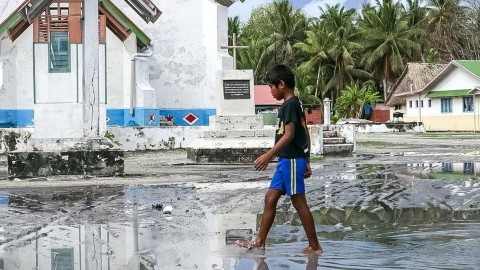
Yes, Crises Do Happen: A Plea for Feeling More Vulnerable After COVID-19
23/03/2020
Facing up to the surreal and unprecedented changes society is undertaking in response to the coronavirus, Elke Verhaeghe reflects on the washing away of the notion of being ‘untouchable’ felt by many in Europe prior to the crisis, and pleads that this sense of urgency remain post-coronavirus to tackle another crisis of our time – climate change.
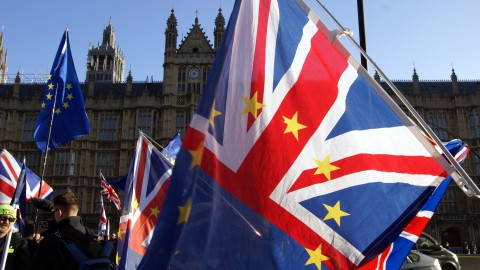
What if Brexit is Good for the UK?
23/03/2020
A question posed time and time again about Brexit, on both sides of the channel, is what happens if it turns out to be good for the UK? Samuel Standaert evaluates just how realistic this prospect is, given the level of economic integration and trade between the two parties, and outlines what he believes are the conditions that would allow a prosperous UK in a post-Brexit Europe.
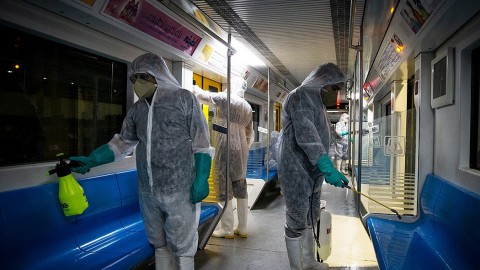
What Can the Coronavirus Teach Us About Regional Integration in Health?
28/02/2020
As countries around the world struggle to contain the spread of the Coronavirus, it is becoming increasingly apparent that a coordinated response at all levels is required. María Belén Herrero examines the lessons to be learnt from Latin America, and how South-South cooperation style policy, based on a horizontal relationship and peer cooperation, may hold the answers.
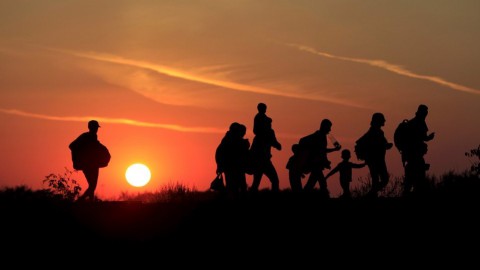
The Inadequate Debates on Migration and Society
14/02/2020
While there is increasing exchange between researchers, politicians and social society actors on migration, writes UNU-CRIS Assistant Professor Ine Lietaert, the current debates fail to address the most pertinent question of all – is the path we’re on now leading to the kind of society we want?
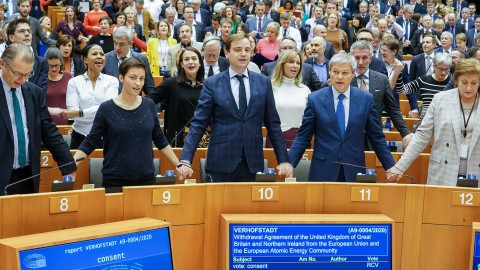
Reconnecting in 2020
31/01/2020
Newly appointed UNU-CRIS Director ad interim, Philippe De Lombaerde, previews 2020, what it means for the study of regionalism and governance at all levels, and how UNU-CRIS fits into what will be a year of reconnection.
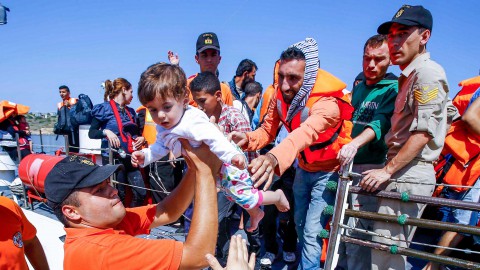
Brushing the Dust Under the Return Migration Carpet?
17/12/2019
Among the most pressing issues facing the new EU Commission, migration figures high on the agenda, however previous political unwillingness to bring about true, transformative migration policies at both the EU and national levels has resulted in the recycling of long-standing policy refrains and an overreliance on problematic remedies. Rossella Marino looks at the current return migration policy and its outlook in 2020 and beyond.

Camus, Revolt and Europe
04/12/2019
While the trends of today appear to revolve around nationalism and a return to hard borders - in other words, towards disintegration - Filippo Blancato explores what French-Algerian philosopher Albert Camus and his work L’Homme Revolté (The Rebel) can teach us about conflict, history and the future of cooperation among men and nations, and how the EU can tame the forces that produce tension and separation.

Regions and Cities as Foreign Policy Actors: Between Reviving the Past and Implementing the Contemporary
22/11/2019
California defies Donald Trump on the Paris Climate Agreement. Flanders opens a foreign office of its own and joins the UN World Tourism Organization as an independent member. A fresh push for a Scottish referendum in light of Brexit. These are all examples of paradiplomacy, writes Philipp Häntsche, an understudied, yet ever-present, form of international relations.
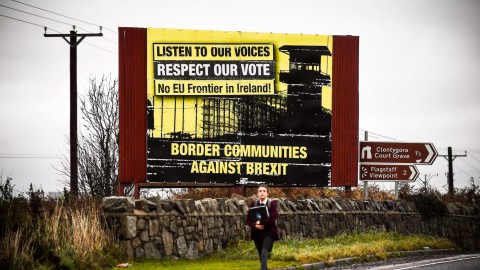
Brexit, the Irish Question and EU Disintegration
06/11/2019
The Irish question has become one of the main sticking points of the Brexit negotiations, with 'backstop' entering the vocabulary of millions of onlookers throughout the process. With another deadline passed and a general election looming, Susannah Dibble asks how the European Union can best carry out the delicate task of disentangling its relationship with the United Kingdom while helping to maintain a Northern Irish peace built on regional integration.
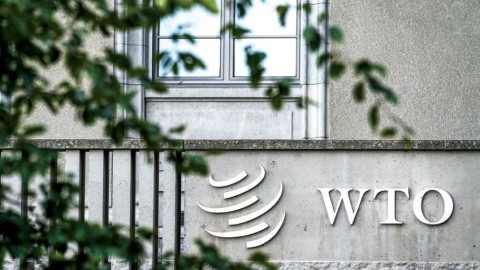
The WTO’s Other Challenge
30/10/2019
Civil society and UNCTAD call for a reform to the World Trade Organization in order to embed sustainability principles deeper in the organisation’s work. It is not going to happen immediately, posits Diana Potjomkina – but we should pay attention.
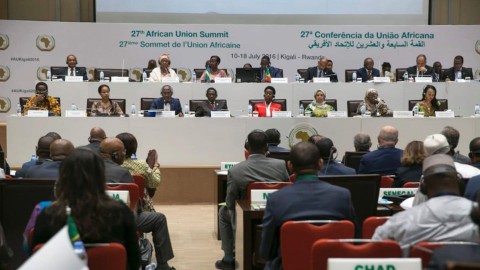
The African Union: Are Its Institutional and Financial Reforms Worth the Hype?
23/10/2019
While the African Union's ambitious set of reforms introduced in 2016 took steps in the right direction, Nandi Makubalo asks the question - are these worth the hype or must more be done in order for it to realize the SDGs and Agenda 2063?
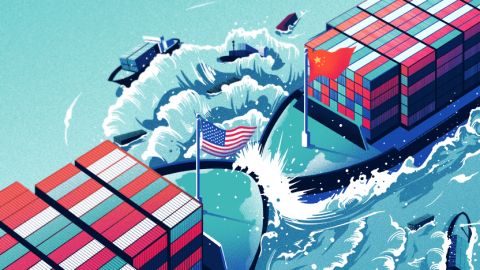
Of Trade, Regions and Power
09/10/2019
With the US-China trade war showing few signs of abating, the EU-MERCOSUR deal in jeopardy and a rift between Japan and South Korea growing wider, it's clear the global trade and investment landscape is in a parlous condition. Filippo Blancato looks at what the current pushback against regional economic governance bodes for the future, and what the EU must do to reinvigorate the multilateral trade system.

What is Internationalisation?
16/09/2019
Much has been said about this interconnected world, about common challenges faced by countries, and the relationship between the domestic and international spheres. Glaucia Bernardo and Leonardo Mèrcher look at internationalisation, a concept that has come to play a part in our daily lives, and in particular its impact on higher education.
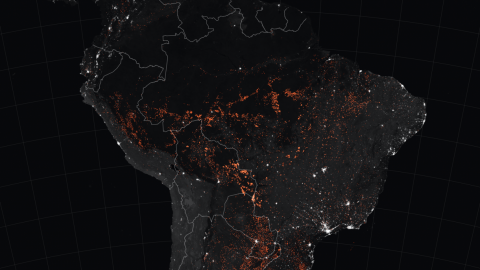
When the Amazon Burns
05/09/2019
As the Amazon burns and the tensions between Brazilian President Jair Bolsonaro and the international community grow, Elke Verhaeghe and Marjolein Derous look at the EU's chequered past when it comes to forest protection and sustainability, and what the new EU Commission can do to save the 'lungs of our planet'.

A Tale of Two (Hot) Cities
30/07/2019
On the hottest day ever recorded in Belgium, UNU-CRIS Director Ad Interim Prof. Dr. Luc Soete outlines why UNU-CRIS is hot - both in the setting of the historic Episcopal Seminary in which it is housed, and as the place to be for addressing intellectual challenges dealing with how to govern the big challenges of our time.
